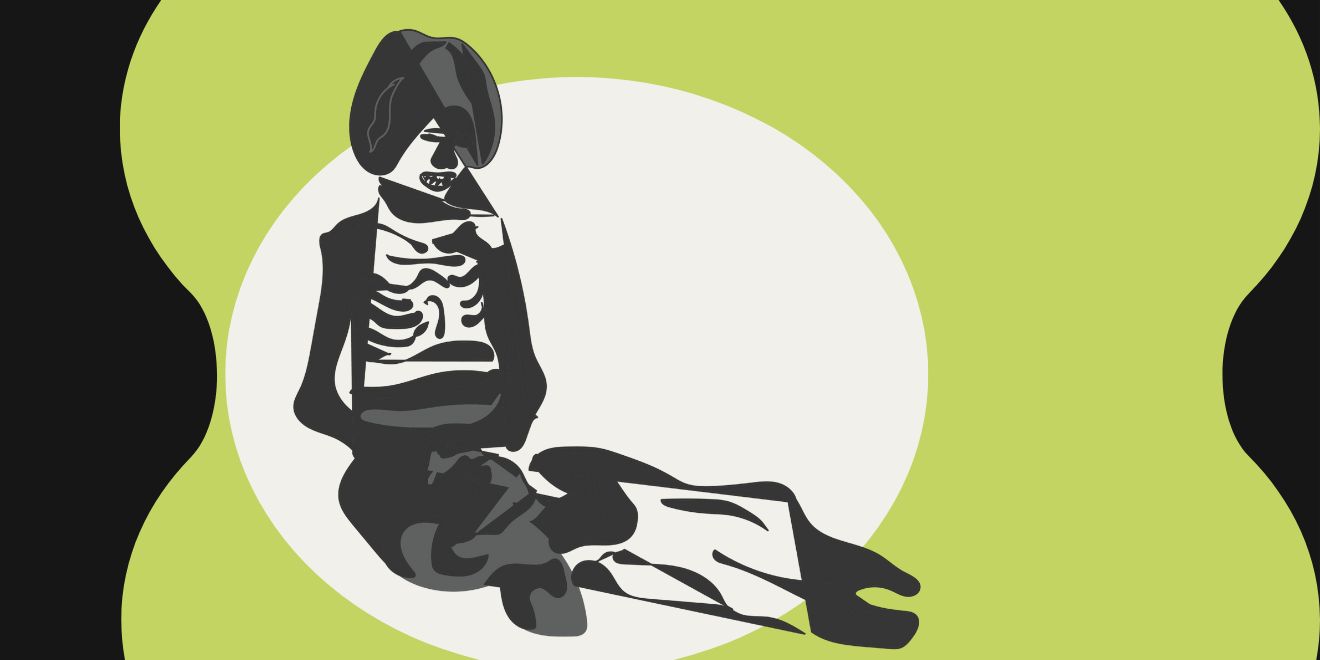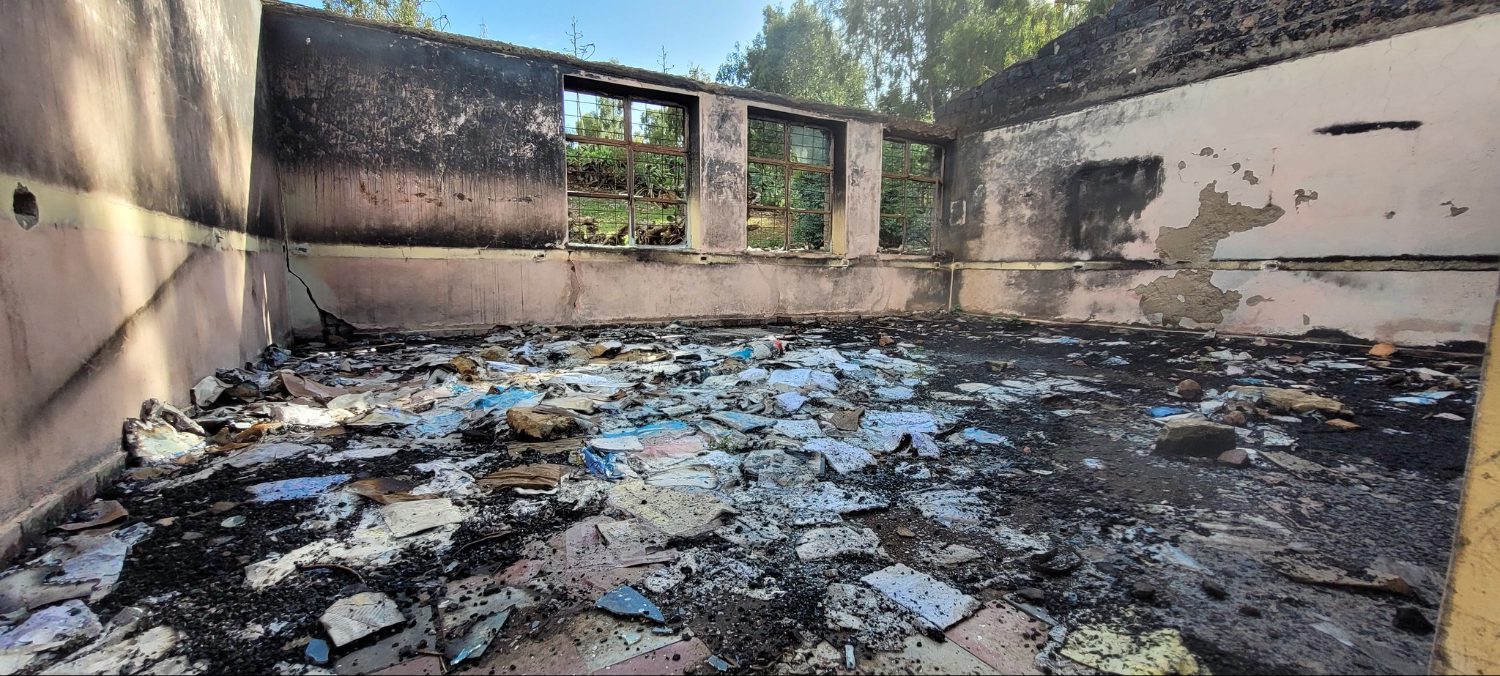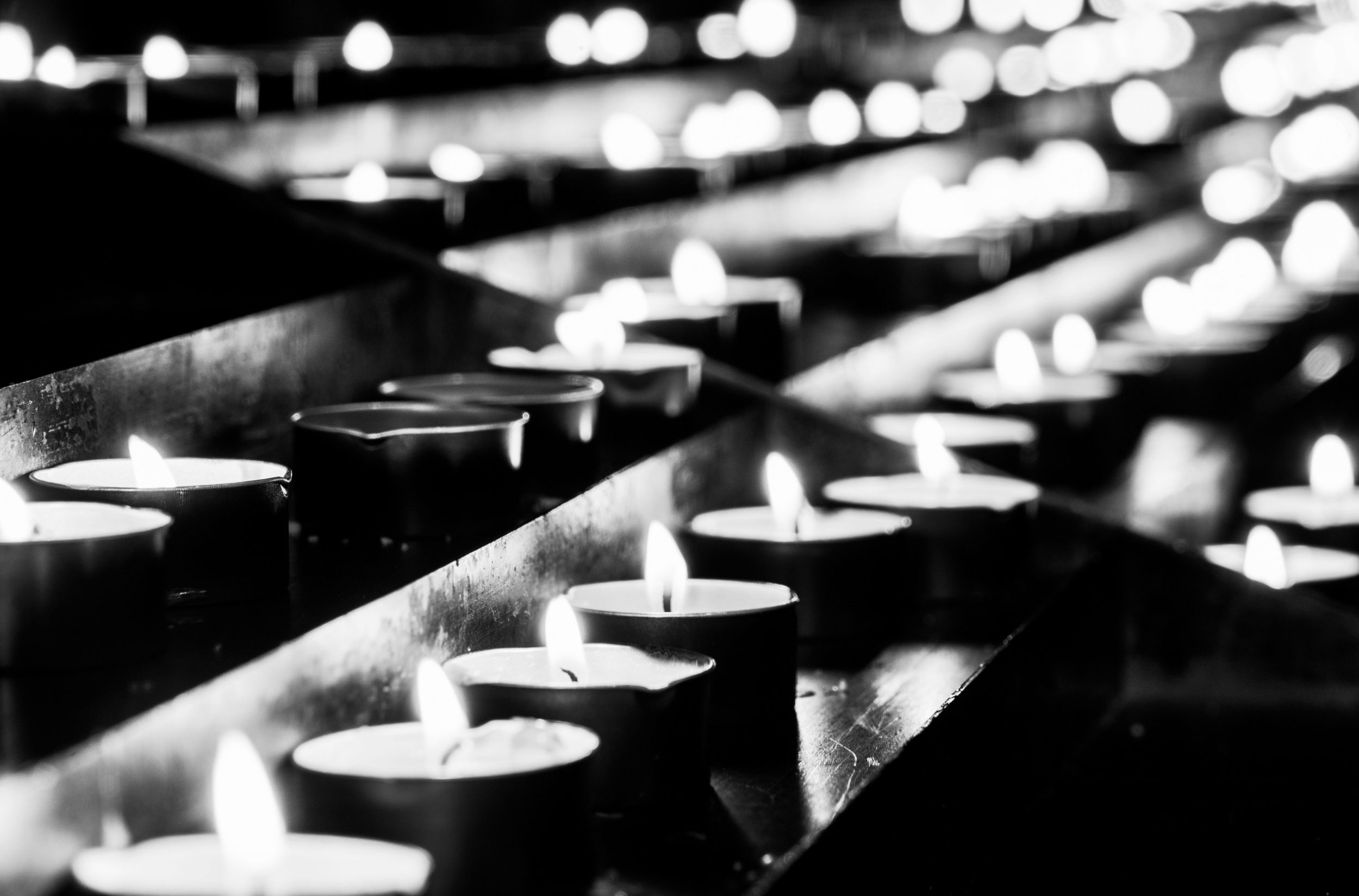This is the second of a three part essay by Mulugeta Gebrehiwot Berhe, describing how the war that began in 2020 has fundamentally altered life in Tigrayan capital city, Mekelle. Follow the links for Part 1.
You will see empty stores.
Many convenience stores and grocery shops are closed and those opened offer few goods and grocery with expensive prices. You may be asked to provide 25 Birr for a roll of a tissue paper that used to be sold for 2 Birr. You may be asked 50 Birr for a bar of bath soap you used to pay 10 Birr. You may be asked 70 Birr for a kilo of banana and 80 birr for a kilo of orange for 50 Birr which used to respectively cost not more than 14 and 18 Birr. Farmers and traders are discouraged to avail them to the market due to unavailability of transport and heavy costs for its when available.
Coffee shops which Deki Mekelle (literally: those fromMekelle) used to call Kef houses (which literally means ‘sitting’ houses for someone interested in passing time) are now almost empty. Many of the vendors have closed their shops and joined the TDF and some are active in some other tasks related to the resistance. Those open are rarely full of customers as they used to be and mostly not in their usual outfit, with nicely cut or made hair and fashionable clothes. You hardly see the usual snobbish Deki Mekelle on the streets and coffee shops. Most of them have joined the TDF, some are busy doing something for the resistance, and attending to your hair and dressing well has become a taboo for the rest.
Sitting in the coffee shops, you may find elderly men and women, decently dressed, standing on your side not looking into your eyes but mumbling a few words asking for support. You usually don’t hear the exact words, as they don’t know how to beg. They never before asked for alms in their entire life. Probably, many of them were being supported by their kids working elsewhere in Ethiopia or in the diaspora. Today, they no longer have any means for contacting their family and cannot get any money transferred. Some of them are retired civil servants, soldiers. They used to live on their retirement benefits that have ceased to come as of the last six months as part of the complete siege of Tigrai by Abiy Ahmed. This is one of the heart-breaking experiences you see walking in Mekelle or sitting in a coffee shop.
While Mekelle has closed its fuel stations due to lack of supply, I imagine Beshasha would have at least an open fuel station selling fuel at government regulated prices. Unlike Mekelle, Beshasha may also have one or more bank branches connected to their headquarters with proper cash flows.
As opposed to the closed and empty shelf pharmacies of Mekelle, the drug shops of Beshasha do have regular supply of medicine. If you fail to find what you need you can take a ride to Agaro, Jima, and even fly to Addis Ababa for a better medical service. The bars of Beshasha are not forced to close as a result of lack of beverage supplies. Bedelle beer brewery is not far from Jimma and, unlike the beverage factories in Tigrai, can access the supplies it needs to produce. Fortunately, the essence of Mekelle was not its material conditions but its spirit of love, equality, and integrity that persevered atrocities of a similar nature.
You will find a city with no telecom and internet connection
It may be difficult to understand modern city life without telecommunication. You can’t call a friend for a chat or a colleague for a business discussion. You should either walk to her/his house, send someone to ask for an appointment, or be lucky enough to accidentally meet the person while on some other business so that you can take an appointment. The engineers of Tigrai made the land line telephone in Mekelle work as of the second week of September, but there were only few lines working as before the war almost everyone shifted to mobile phones and internet connections.
Mekelle has no internet data connection, with the exception few outlets owned by some international humanitarian organizations. As a result, people rarely get an internet connection, and when they do the bandwidth is low, and they use it for voice calling their relatives on those few lucky occasions when they make a connection. You can access various Ethiopian television channels based in Ethiopia and abroad, including the channels of the Ethiopian Broadcasting Corporation. However, few of them share information, but serve primarily as an extension of propaganda program of the regime. As a result, people fill this gap by accessing the information posted by private users and activists. Some people who accessed their social media take screen shots of whatever post they thought important to read and share it with their friends. As a result, you see music shops and individuals with a laptop and a smart phone on the sideroad of hotels, shops, and walkways sharing social media screen shots and YouTube stories via flash disks at a cost. It is not uncommon to see youngsters gathered sharing and exchanging screen shots and flash disc copies of YouTube recordings.
You may talk to one of the vendors to understand more about the magnitude of this information selling business. I talked to some of the vendors and here are my findings. This business started in November 2020 when the regime cut Tigrai from electric grid connectivity as part of its war strategy. Individuals began going to hotels with generators so that they could access live TV live broadcasts. As most people neither had the time nor the money to spend to sit in hotels and watch TV, some music shops began dubbing news and ‘important’ programs related to the war on Tigrai and began selling them to customers via flash disk and by using wireless transfer methods to smartphones using software like Bluetooth and Xender.
At the end of November, Mekelle fell under the full control of the ENDF and the EDF. Listening to the short-lived Dimtsi Woyane TV (DW TV) and Tigrai Media House (TMH) in public places was barred, a development that boosted the market of sharing via flash disks and other applications for wireless data transfer. Many customers with Facebook accounts have little knowledge on efficient ways of searching information on Tigrai and people spend a lot of time on Facebook wasting a lot of money. For this reason, the music shops began employing graduates, who were knowledgeable about who is affiliated with whom and can systematically search information and/or opinions of different actors on a certain issue. They then take screen shots and assemble them in a way so that customers can update themselves at a shorter time and a lower cost.
I found Hailemichael Mezgebe and Addis Fantahun, both Mekelle university graduates of economics, running this business using a single laptop on the side road of Romanat Plaza at the center of the city. They informed me that once Mekelle was out of any internet and telephone connection, they used to go to places where internet connection is available to download data from YouTube and screenshot Facebook postings of political activists, sharing them with customers.
Hailemichael says, we know the media groups based on their affiliations. We download commentaries and discussions from YouTube based on their affiliations. Kelo media and OMN usually post commentaries opposed to Prosperity Party by Oromo opposition activists. Ethio-360 bring commentaries are usually anti TPLF (which often times also become anti-Tigraian). This outlet also accuses the Prosperity Party as a party that promotes Oromo dominance. ESAT essentially brings the voices of Amhara elites in support of Abiy Ahmed but also includes the voices of pro-government non-Amhara activists as well.
He also indicated that they download commentaries from Tigrai Media House and internet-based broadcasts of Rara media, Axumite media, and Dedebit media for Tigraian voices from all corners and not necessarily pro-TPLF voices. He confidently indicates that they know a range of bloggers and Facebook activists associated with the key officials of the federal government of Ethiopia and the regional administration of Tigrai, they are all called image builders.
Nowadays, they buy the screenshots and the downloads from others with data connection and distribute to their customers. They don’t add anything to it except that they provide it at proximity to their customers. Both of them earn 300-400 Birr per day on this business while those with shops and established customers earn up to 1,000 Birr on this business alone.
This is the second installment of a three part essay. Please follow the links to access Part 1.


